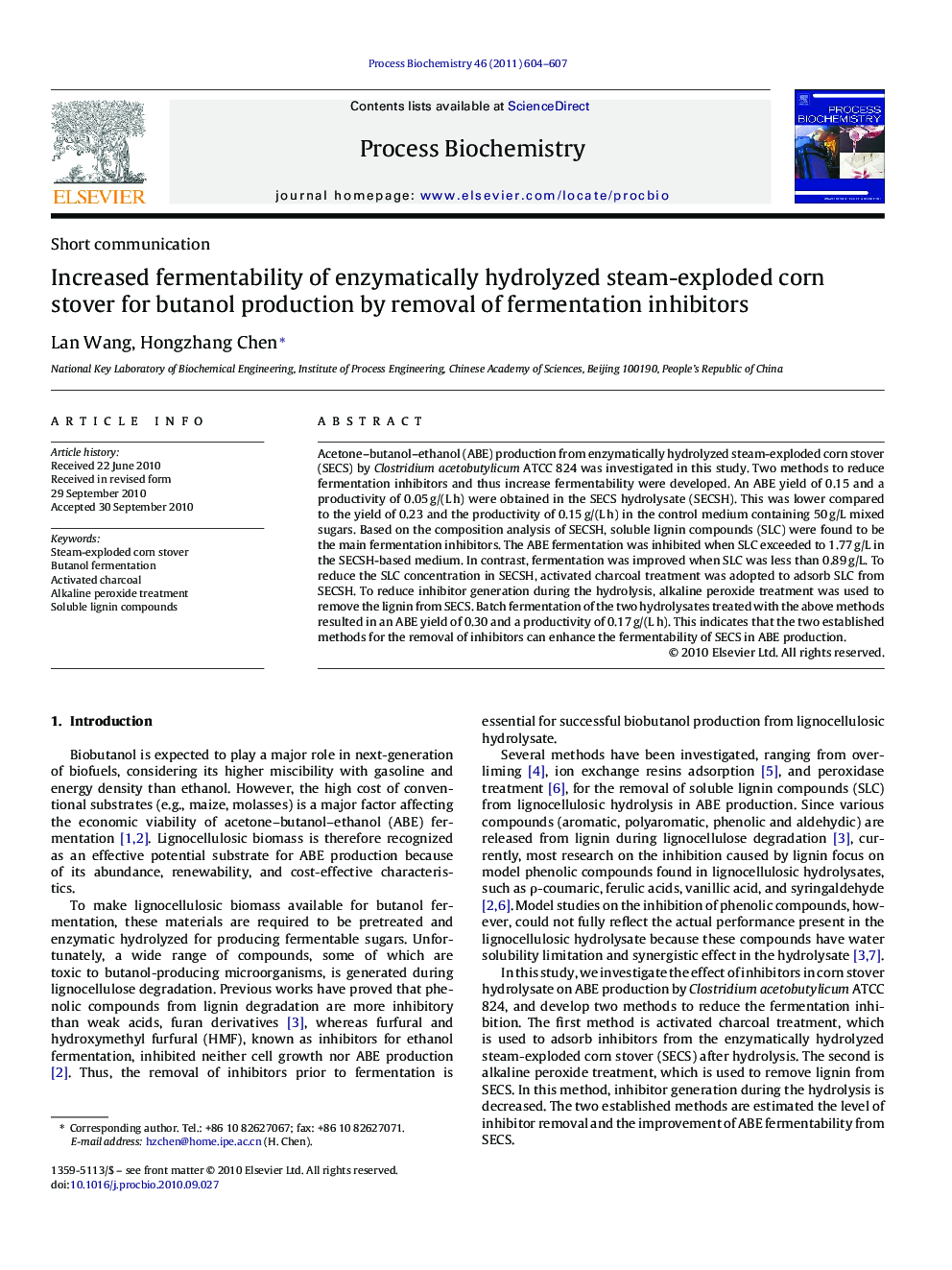| Article ID | Journal | Published Year | Pages | File Type |
|---|---|---|---|---|
| 10236060 | Process Biochemistry | 2011 | 4 Pages |
Abstract
Acetone-butanol-ethanol (ABE) production from enzymatically hydrolyzed steam-exploded corn stover (SECS) by Clostridium acetobutylicum ATCC 824 was investigated in this study. Two methods to reduce fermentation inhibitors and thus increase fermentability were developed. An ABE yield of 0.15 and a productivity of 0.05Â g/(LÂ h) were obtained in the SECS hydrolysate (SECSH). This was lower compared to the yield of 0.23 and the productivity of 0.15Â g/(LÂ h) in the control medium containing 50Â g/L mixed sugars. Based on the composition analysis of SECSH, soluble lignin compounds (SLC) were found to be the main fermentation inhibitors. The ABE fermentation was inhibited when SLC exceeded to 1.77Â g/L in the SECSH-based medium. In contrast, fermentation was improved when SLC was less than 0.89Â g/L. To reduce the SLC concentration in SECSH, activated charcoal treatment was adopted to adsorb SLC from SECSH. To reduce inhibitor generation during the hydrolysis, alkaline peroxide treatment was used to remove the lignin from SECS. Batch fermentation of the two hydrolysates treated with the above methods resulted in an ABE yield of 0.30 and a productivity of 0.17Â g/(LÂ h). This indicates that the two established methods for the removal of inhibitors can enhance the fermentability of SECS in ABE production.
Related Topics
Physical Sciences and Engineering
Chemical Engineering
Bioengineering
Authors
Lan Wang, Hongzhang Chen,
